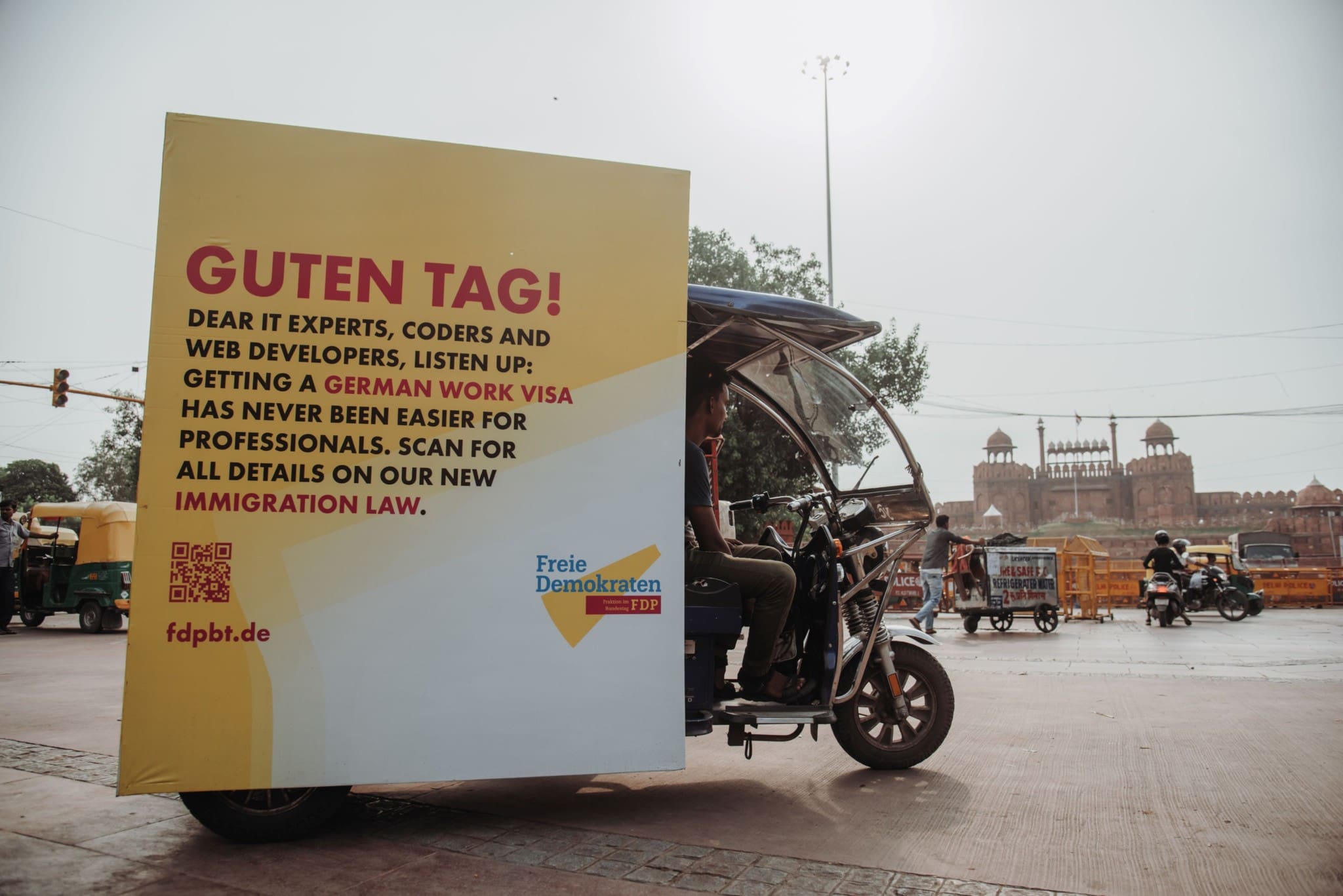One of Germany’s ruling coalition parties is using advertising boards on rickshaws in India to attract economic migrants to the country, insisting it has “never been easier” to migrate to Germany.
Boards have been plastered onto the three-wheel vehicles, a popular mode of transport in the Indian subcontinent, encouraging IT professionals to apply to live and work in Germany.
Paid for by the Free Democratic Party (FDP), a member of German Chancellor Olaf Scholz’s coalition federal government, the adverts tell “IT experts, coders, and web developers” that “getting a German work visa has never been easier” and provide a QR code applicants can use to access information on how to relocate to the country.
The party posted photos of the adverts running in New Delhi on their social media pages.
The party wrote that the German IT industry has been suffering for years from a skills shortage and said a new migration portal enables prospective migrants to check more easily whether they would be eligible to relocate to Europe.
[pp id=75339]
The recruitment drive comes at a time when German lawmakers are passing reforms to the Skilled Immigration Act to make it easier for migrants to acquire work permits. The plans, approved by the Bundestag on Friday, are expected to result in an annual increase of 60,000 non-EU workers, with the law aiming to relax requirements on non-academic workers as well as qualified professionals.
The new law will also allow more migrants to arrive in Germany without a job offer and apply from within, rather than waiting for employment opportunities to be offered to them back in their home country.
Immigration remains at a sky-high level in the country. Figures published by the Federal Statistical Office, Destatis, in April revealed that almost one in five (18 percent) of German residents immigrated to the country, while another 5 million of the 84 million-strong population are the children of immigrants.
Public opinion on the liberal migration policies adopted by the federal government this century has shifted considerably.
[pp id=59861]
A representative survey conducted by ARD Deutschlandtrend last month revealed that more than half of Germans believe immigration into the country is too high, and 54 percent believe that Germany overall suffers setbacks as a result of immigration.
Public sentiment is beginning to be reflected in voting intentions, with the anti-immigration Alternative for Germany (AfD) party now polling as the second-biggest party in the country.
On Sunday, AfD candidate Robert Sesselmann won the second round of elections in Sonneberg, Thuringia, becoming the first politician from the party to hold a district leadership post in what has been touted as a historic victory for the AfD at a time when it is seeing record support from the wider electorate.






